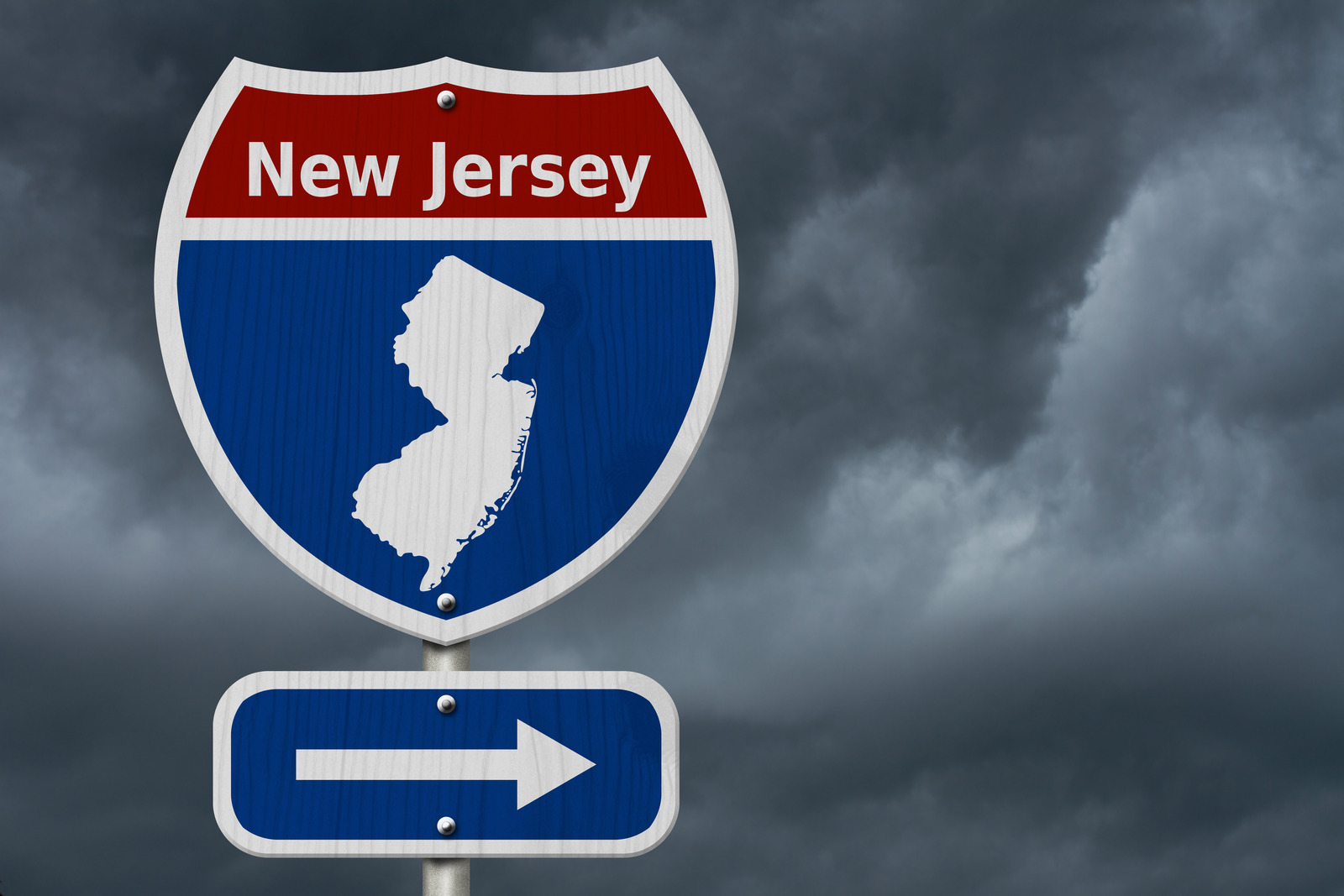What are the Involuntary Treatment Laws in New Jersey?
Written By:
Updated On: May 27, 2024
Last Medically Reviewed on: May 27, 2024

Table of Contents
Key Points
- Involuntary Treatment is designed to help people who have not self-medicated for mental health treatment after leaving inpatient care.
- In New Jersey, the “Involuntary Outpatient Program” allows a patient to be held in inpatient care involuntarily for up to 72 hours and up to 144 hours with a temporary court order signed by a judge.
- There is a strict set of criteria that must be met to justify involuntary commitment.
- After transitioning from inpatient care, the patient is enrolled in mandatory outpatient care for several months.
- A good outpatient treatment center should include licensed and accredited professionals and empathetic care.
As of 2023, New Jersey updated its laws regarding involuntary psychiatric commitment for mental health treatment. While minimum standards of proof must be met for an involuntary 72-hour hold, a temporary court order signed by a judge can double the length of time of inpatient treatment to 144 hours.
The declared purpose of the law is to allow more time for healthcare providers to secure a psychiatric bed for the patient amidst a statewide shortage.[1]
New Involuntary Treatment Laws In New Jersey
On August 16, 2023, New Jersey Governor Phil Murphy signed into law bill S3929.[2] It revises the length of commitment a person experiencing a mental health crisis can be held against their will to secure a psychiatric bed to receive ongoing outpatient care.
The IOC (Involuntary Outpatient Commitment) Program has been active since 2012 in New Jersey. It purports to help people experience a productive out-of-hospital existence that depends on consistent self-medication.[3]
When a person has been deemed a danger to themselves or others “in the foreseeable future” (rather than the inpatient criteria of “imminent” danger”), they must be screened at an appropriate psychiatric evaluation facility. If the appropriate criteria are met, a screening certificate will be issued.[4]
The IOC Process
They can be involuntarily committed to inpatient care for 72 hours and outpatient care for many months. If the facility can secure a temporary court order signed by the judge, they can be kept for up to 144 hours.
A key aspect of the law is that while a judge can order someone to attend IOC treatment programs and court hearings as a condition for release from inpatient hospital care or jail, they cannot force them to take therapeutic medication as long as they can do so themselves.
After 12-18 months without an involuntary hospitalization, a person can “graduate” from the program. Any voluntary hospitalizations will result in continued enrollment without resetting the graduation date, and the IOC treatment team will revise the treatment plan to better address factors that may have contributed to the voluntary hospitalization.
The hope is that during involuntary adherence to treatment, a person will see the benefit of voluntarily maintaining self-medication and treatment programs. This could allow them to experience longer periods of stability and, therefore, more satisfaction with life in general.
Legal Criteria For Involuntary Treatment In New Jersey
There is a high standard set of criteria that must be met to issue a screening certification to commit a person to inpatient treatment for 72 hours involuntarily and then outpatient treatment for many months.[5] The patient must be:
- An adult at least 18 years of age or older
- Presenting with serious mental disorders
- Unlikely to adhere to medicated treatment based on treatment history and live safely in the community without supervision (must have a history of more than two involuntary hospitalizations, incarcerations, or dangerous behaviors as a result of mental disorder)
- Refuse treatment or lack the capacity to accept treatment voluntarily
Patients who are normally screened for entrance to the Involuntary Outpatient Commitment (IOC) program respond positively to medication during inpatient treatment but neglect to continue self-medicating during outpatient treatment.
This creates a vicious cycle of crisis, treatment, and relapse, which the IOC program seeks to break. By holding the patient for up to 72 or 144 hours to secure a temporary court order for inpatient treatment, you or your loved one have a stronger chance of getting the help you need.
To exceed the 72-hour threshold and be committed to inpatient care of up to 144 hours, judges will require that two criteria be met by the hosting facility:[6]
- They have exhausted all reasonable efforts to place the individual in a facility appropriate for their condition.
- Owing to the presenting mental disorder, they have demonstrated that there is a substantial likelihood that the person will be dangerous to themselves or others.
Who can authorize an involuntary 72-hour hold in NJ?
Upon receipt of a screening certificate, the law authorizes the Involuntary Outpatient Commitment (IOC) program to commit a person to involuntary inpatient care.
If the facility has reasonably yet fruitlessly tried to place the person in an appropriate care facility for their mental condition, and if the person continues to pose a danger to themselves and others, a judge can authorize a temporary court order for extended inpatient care.
What is the legal process for an involuntary hold in NJ?
While a short-term care facility, psychiatric facility, general hospital, satellite emergency department, or jail can request a screening service, the law requires a licensed psychiatrist to perform the forensic examination.[7]
The evaluation the psychiatrist will perform is the “Future Dangerousness Assessment”. If the necessary criteria are met for Involuntary Outpatient Commitment (IOC) enrollment, a screening certificate is issued.
Once this certificate is issued, the IOC Program can commit a person up to 72 hours in inpatient psychiatric care. If the necessary criteria are met, a judge can issue a temporary court order to extend the inpatient care up to 144 hours.
What Happens During Involuntary Treatment In New Jersey?
During involuntary mental health treatment, the goal is to evaluate the presenting disorder, stabilize the person, and address the factors that led to involuntary commitment in an ongoing treatment plan.
Depending on the level of danger the person presents to themselves and others, chemical restraints may be used. Physical restraints are less commonly used. Once the person no longer meets the criteria for commitment or once the time limit has expired, the person is discharged.
What Happens After Involuntary Treatment In New Jersey?
After short-term inpatient commitment is long-term outpatient treatment, which will occur outside the walls of a traditional hospital. Outpatient mental health treatment involves licensed and accredited healthcare professionals who provide evidence-based treatment modalities to improve the symptoms of your mental disorder.
At Soba NJ, we don’t believe there’s a “one size fits all” approach to recovery. We take a considerable amount of time evaluating your needs, history, and lifestyle requirements before we make treatment recommendations.
Whether you need one session per week or multiple sessions per day, we will craft a treatment plan that puts you on the trajectory to recovery.
Call admissions today to begin your recovery journey.
Do Not Delay – Choose Health
Don’t wait for another mental health crisis to address the factors that lead to relapse or dual diagnosis disorders.
Take preventative steps today and seek out our treatment facility in New Jersey which offers compassionate care and evidence-based treatments. Don’t lose hope. Start looking today for a local care provider who meets your high standards.
Frequently Asked Questions About Involuntary Treatment in New Jersey
What is the difference between involuntary and voluntary treatment?
In involuntary treatment, patients can be checked into a hospital against their wishes if they meet a strict set of criteria.
They must be an adult over the age of 18, have a serious mental disorder, pose a danger to themselves or others in the foreseeable future, and refuse treatment/cannot accept treatment voluntarily.
They can be held for up to 72 hours with a screening certificate and up to 144 hours with a temporary court order signed by a judge. They can be discharged when a suitable facility is found for them or the time limit elapses.
In voluntary treatment, patients can admit themselves to a hospital if they are concerned for their well-being. No specific criteria must be met. If it is their wish, they can be discharged even if it is against medical advice.
What is the difference between an involuntary hospitalization and an involuntary treatment in NJ?
An involuntary hospitalization is generally the institutional response to a mental health crisis. It occurs in an inpatient setting like a hospital or a satellite emergency room. The scope of an involuntary hospitalization is to stabilize the patient.
The family can request involuntary treatment of a person with a mental disorder. It is meant to prevent future mental health crises caused by a persistent failure to self-medicate in an outpatient setting.
Involuntary treatment begins with a screening by a licensed psychiatrist. If the criteria are met, a screening certificate is issued, and the Involuntary Outpatient Commitment (IOC) can hold the patient for up to 72 hours.
During this holding period, if a suitable facility is found, the patient will be transferred to a new facility. As a condition of release, a judge may require the patient to attend treatment programs and court dates but cannot force them to take medication.
What is a 5250 hold in NJ?
There is no such thing as a “5250 hold” in NJ, although there is something similar. A 5250 hold is a California-specific provision that allows healthcare providers to hold a patient for an additional 14 days of involuntary treatment.
It extends the 5150 provision, which allows people to be committed for 72 hours if they pose an imminent danger to themselves or others. In New Jersey, the Involuntary Outpatient Commitment (IOC) was just amended in 2023 to allow providers to keep patients up to 144 hours for involuntary inpatient treatment if they can get a temporary court order signed by a judge.
This extends the length of the program allowed by a valid mental health screening certificate by another 72 hours.
There is a Better Way to Live. It's Time to Get the Help You Deserve.
Take the first step in getting your life back. Speak with our admissions team today.Sources
[1] Jung, T. (2023, August 17). New NJ Law extends involuntary Psychiatric Hold Time. https://www.njspotlightnews.org/2023/08/nj-extends-involuntary-psychiatric-holds-amid-concerns/
[2] Bill S3929. New Jersey legislature. (n.d.). https://www.njleg.state.nj.us/bill-search/2022/S3929
[3][4][5] New Jersey Psychiatric Association. (n.d.). Involuntary Outpatient Commitment (IOC). https://www.njpsychiatry.org/wp-content/uploads/2019/10/ioc_finalformatted.pdf
[6][7] State of New Jersey. (n.d.-b). No. 3929. https://pub.njleg.state.nj.us/Bills/2022/S4000/3929_S1.PDF



